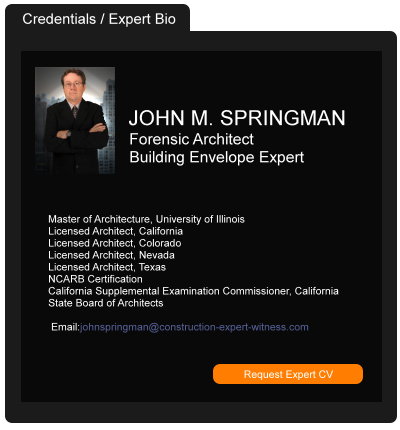Washington Builders Right To Repair Current Law Summary:
Current Law Summary: (SB 5536) The legislature passed a contractor protection bill that reduces contractors' exposure to lawsuits to six years from 12, and gives builders seven "affirmative defenses" to counter defect complaints from homeowners. Claimant must provide notice no later than 45 days before filing action; within 21 days of notice of claim, "construction professional" must serve response; claimant must accept or reject inspection proposal or settlement offer within 30 days; within 14 days following inspection, construction pro must serve written offer to remedy/compromise/settle; claimant can reject all offers; statutes of limitations are tolled until 60 days after period of time during which filing of action is barred under section 3 of the act. This law applies to single-family dwellings and condos.
Building Expert Contractors Licensing
Guidelines Seattle Washington
A license is required for plumbing, and electrical trades. Businesses must register with the Secretary of State.
Association Directory
Local # 4955
335 116th Ave SE
Bellevue, WA 98004
http://www.masterbuildersinfo.com
Seattle Washington Building Expert 10/ 10
Home Builders Association of Kitsap County
Local # 4944
5251 Auto Ctr Way
Bremerton, WA 98312
http://www.kitsaphba.com
Seattle Washington Building Expert 10/ 10
Home Builders Association of Spokane
Local # 4966
5813 E 4th Ave Ste 201
Spokane, WA 99212
http://www.shba.com
Seattle Washington Building Expert 10/ 10
Home Builders Association of North Central
Local # 4957
PO Box 2065
Wenatchee, WA 98801
http://www.nchba.cc
Seattle Washington Building Expert 10/ 10
MBuilders Association of Pierce County
Local # 4977
PO Box 1913 Suite 301
Tacoma, WA 98401
http://www.mbapierce.com
Seattle Washington Building Expert 10/ 10
North Peninsula Builders Association
Local # 4927
PO Box 748
Port Angeles, WA 98362
Seattle Washington Building Expert 10/ 10
Jefferson County Home Builders Association
Local # 4947
PO Box 1399
Port Hadlock, WA 98339
http://www.jeffcohomebuilders.com
Seattle Washington Building Expert 10/ 10
Building Expert News and Information
For Seattle Washington
Court Finds Duty To Defend Environmental Claim, But Defense Limited to $100,000
Trial Court Abuses Discretion in Appointing Unqualified Umpire for Appraisal
Florida Self-Insured Retention Satisfaction and Made Whole Doctrine
No Signature, No Problem: Texas Court Holds Contractual Subrogation Waiver Still Enforceable
Summary Judgment in Favor of General Contractor Under Privette Doctrine Overturned: Lessons Learned
PulteGroup Fires Exec Accused of Defamation By Founder’s Heir
Impaired Property Exclusion Bars Coverage When Loose Bolt Interferes with MRI Unit Operation
Muir named Brown and Caldwell Eastern leader
Quick Note: Mitigation of Damages in Contract Cases
Note on First-Party and Third-Party Spoliation of Evidence Claims
Recording a Lis Pendens Is Crucial
First Circuit Rejects Insurer’s “Insupportable” Duty-to-Cooperate Defense in Arson Coverage Suit
The Comcast Project is Not Likely to Be Shut Down Too Long
Legislation Update: S-865 Public-Private Partnerships in New Jersey Passed by Both Houses-Awaiting Governor’s Signature
Surprising Dismissal of False Claims Act Case Based on Appointments Clause - What Does It Mean?
California’s Right To Repair Act Is The Sole Remedy For Damages For Construction Defects In New Residential Construction
Environmental Roundup – May 2019
Florida Accuses Pool Contractor of Violating Laws
Georgia Court of Appeals Holds That Policyholder Can “Stack” the Limits of Each Primary Policy After Asbestos Claim
Finding of No Coverage Overturned Due to Lack of Actual Policy
U.S. Housing Starts Top Forecast on Single-Family Homes
Department Of Labor Recovers $724K In Back Wages, Damages For 255 Workers After Phoenix Contractor Denied Overtime Pay, Falsified Records
Cincinnati Team Secures Summary Judgment for Paving Company in Trip-and-Fall Case
Seeking Better Peer Reviews After the FIU Bridge Collapse
FBI Makes Arrest Related to Saipan Casino Construction
No Coverage for Sink Hole Loss
World Cup May Pull Out of Brazil because of Construction Delays
Powering Goal Congruence in Construction Through Smart Contracts
Insurance Law Alert: Ambiguous Producer Agreement Makes Agent-Broker Status a Jury Question
Tech Focus: Water Tech Getting Smarter
Water Seepage, Ensuing Mold Damage Covered by Homeowner's Policy
Higgins, Hopkins, McLain & Roswell Recognized in 2024 Best Law Firm® Rankings
California Team Secures Appellate Victory on Behalf of Celebrity Comedian Kathy Griffin in Dispute with Bel Air Neighbor
Settlement Payment May Preclude Finding of Policy Exhaustion: Scottsdale v. National Union
East Coast Evaluates Damage After Fast-Moving 'Bomb Cyclone'
Construction Costs Absorb Two Big Hits This Quarter
CSLB Begins Processing Applications for New B-2 License
Contractor Convicted of Additional Fraud
Performance Bond Primer: Need to Knows and Need to Dos
Nancy Conrad Recognized in Lehigh Valley Business 2024 Power in Law List
Lake Texoma, Texas Condo Case may go to Trial
Another Colorado Construction Defect Reform Bill Dies
$48 Million Award and Successful Defense of $135 Million Claim
Storm Breaches California River's Levee, Thousands Evacuate
Kahana Feld Partner Jeff Miragliotta and Senior Associate Rachael Marvin Obtain Early Dismissal of Commercial Litigation Cases in New York and New Jersey
New York Court Discusses Evidentiary Standards for Policy Rescission Based on Material Misrepresentation
Terminating Contracts for Convenience — “Just Because”
Evaluating Construction Trends From 2023 and Forecasting For 2024
ASCE and Accelerator for America Release Map to Showcase Projects from Bipartisan Infrastructure Law
Florida’s Citizens Property Insurance May Be Immune From Bad Faith, But Is Not Immune From Consequential Damages


































































